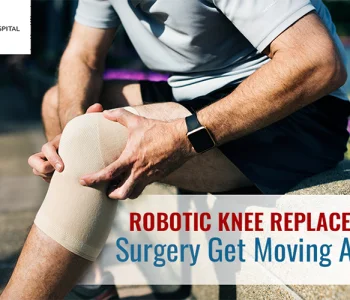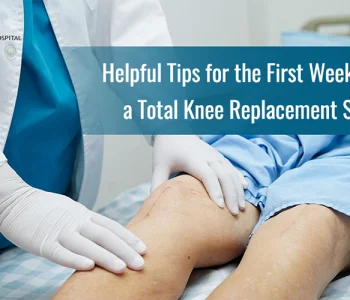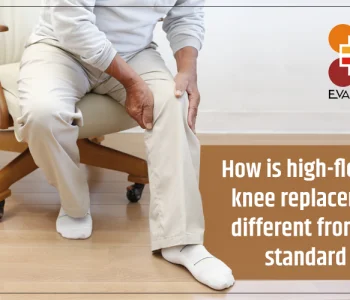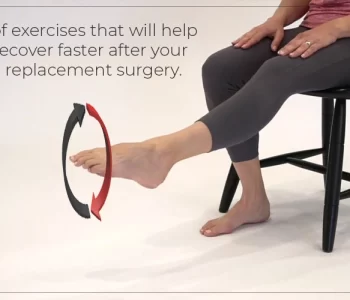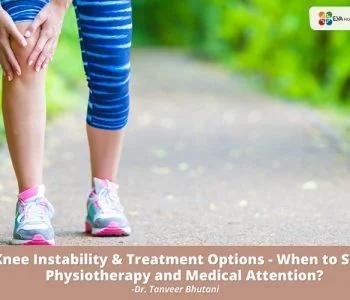How Long can you Delay Knee Replacement Surgery?
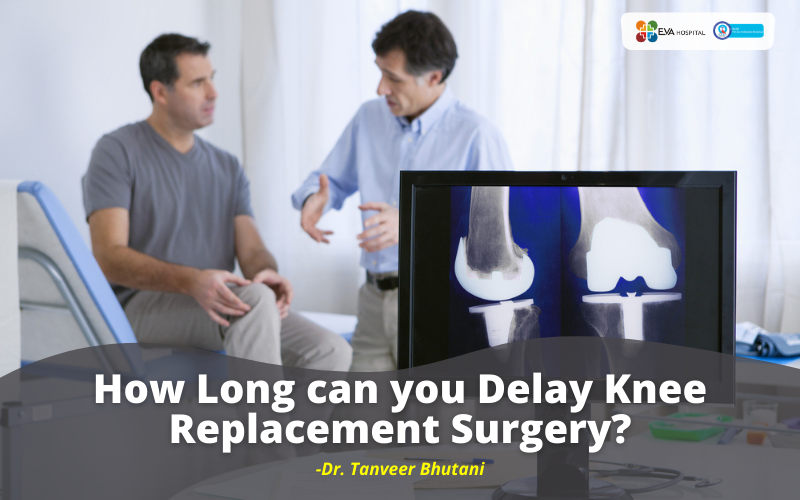 knee replacement surgery
knee replacement surgery
How Long can you Delay Knee Replacement Surgery?
Osteoarthritis is a problem that leads to acute pain in the knees and bone joints and makes the routine activities seem like a mammoth task. You have tried a number of medicines and painkillers but there is no respite.
Instead of reeling for too long in pain and postponing your chores, you consult an orthopedic and you have been advised a knee replacement surgery. It is in blue and bold that a knee replacement surgery is inevitable.
There are impending commitments and priorities before you get the surgery scheduled. You start procrastinating and planning the timeline of events that have to be done before you lay in the hospital bed for the surgery.
“You shouldn’t wait for too long to get your knee replaced,” suggests the best orthopedic and knee replacement surgeon of Punjab, Dr. Tanveer Bhutani.
He further adds that nearly 90% of patients suffering from osteoarthritis wait too long to get a replacement done which deprives them of the benefits of the surgery.
How long can you wait to get the Replacement Surgery?
The right time to get a knee replacement surgery is very crucial and is determined by the condition of the knee and its functionality. You need to get the surgery done as recommended by your orthopedic.
Delaying the surgery by a span of three to four weeks may be allowed if the patient has a big life event like a family vacation or wedding on the charts as recovery after the surgery is a process of three to six months.
Also, you need to be regular in physiotherapy sessions as recommended by your surgeon. Hence you need to meticulously plan and sort out events before scheduling a knee replacement surgery.
Why shouldn’t you wait too long to get the Knee Replacement done?
A surgery delayed beyond recommendation or surgery is done too soon than requisite can put the replacement process and the healing process in a jiffy.
Surgery is done sooner than requirement will put the knee at risk and may call for a second restorative surgery soon. On the other hand, if you delay the knee replacement surgery, you are likely to lose the surgical benefits.
Dr. Bhutani says you put too much strain on the damaged knee by delaying the surgery and you deteriorate it further.
Related: What are the pre and post-surgery precautions during knee replacement surgery?
Delaying the knee replacement surgery can worsen the knee condition, and this in return can adversely affect the pace of recovery after the surgery.
Your mobility before and after the surgery are deeply impacted and delayed if you delay the knee replacement surgery.
Dr. Bhutani says there may be valid reasons for delaying the surgery as if you are the only bread earner of the family or the only person taking care of ailing dependents or if there are urgent commitments to be done.
However, he recommends that the sooner you look for solutions and alternatives, the better it would be.
It is found in studies that the older you get, the chances of recovery and healing are lower as there may be other health conditions like diabetes, blood pressure, or heart ailments that can interfere with the recovery process. T
he younger you are, the more effective is the surgery and the benefits as there is the lesser quantum of damage done to the knee.
Over to You
There is no black and white side to getting a knee replacement surgery.
If your orthopedic studies the status of the knee and the reasons that have caused the damage and recommend a knee replacement surgery, you should not delay it for a very long time.
You may opt for non-surgical measures like exercise and medicines to postpone the surgery. However, these are methods that will provide temporary respite. Get in touch with the best orthopedic surgeon, Dr. Tanveer Bhutani at EVA Hospital, Ludhiana, and get a knee assessment done.
You will understand and get knowledge of the best time to get the surgery done and if you have ample time to delay the surgery.
The benefits of knee replacement surgery can be traced in the success stories of patients who have been able to resume their daily activities, sports, hobbies, and games with vigor and energy.

